-
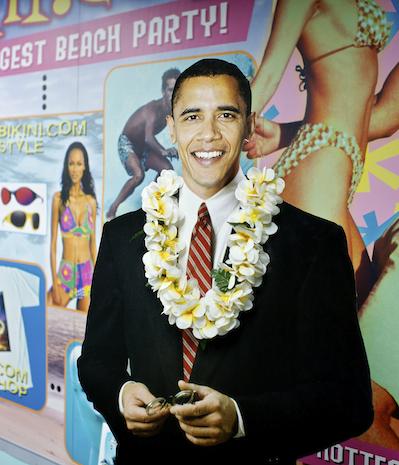
1 Miami, Florida 2009"Forty-four Americans have now taken the presidential oath.......Yet, every so often, the oath is taken amidst gathering clouds and raging storms.”President Barack ObamaWhite House inaugurationJanuary 20, 2009
-
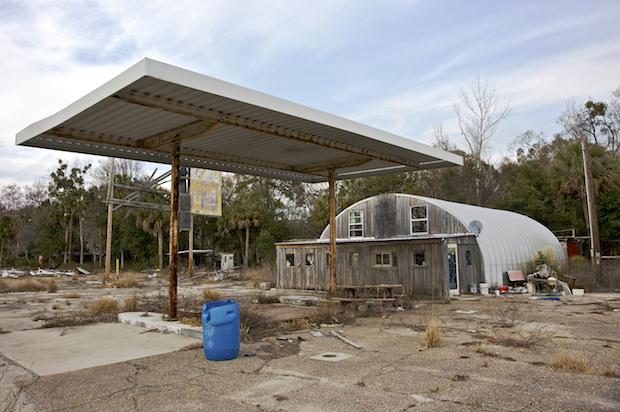
2 Highway 98 Florida 2009"... It was a family run zoo and the owner died ...... the animals escaped and ran away ...I thought you might be the guy who was coming to buythat old '64 Mustang over there.....”Woman at Highway 98 site, Florida 2009
-
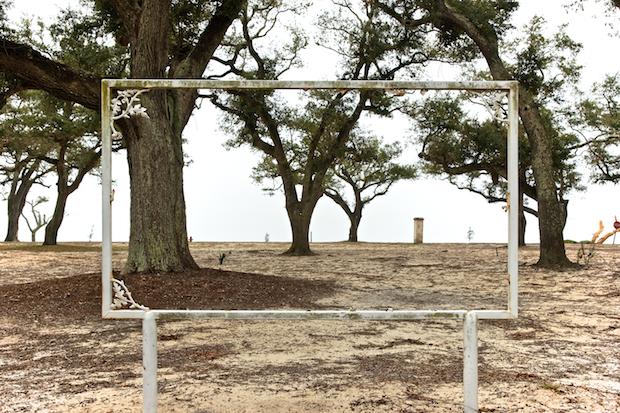
3 Long Beach Mississippi 2009(Welcome to the University of Southern Mississippi Information board)
-

4 Waveland Mississippi 2009
-

5 Waveland Mississippi 2011"... to clean up after Katrina ...... it took them, literally, months to decidewhere to start.”Biloxi Resident 2011
-
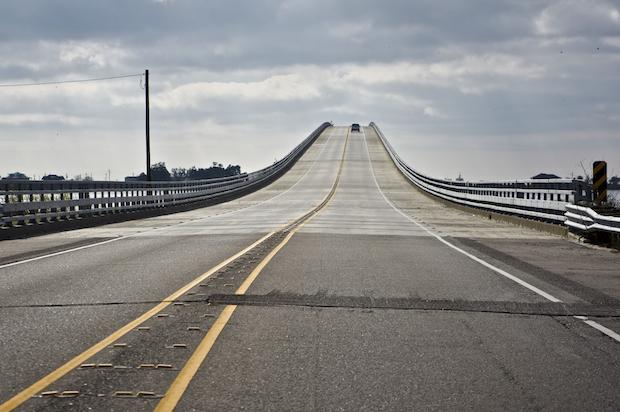
6 Entering New Orleans Lousiana 2011“Something bigger is happening, because if you really look at the heart and soul of America…I call it that 90%, there’s really some great people…...America gave away its Liberty”Biloxi Resident(Audio sequence from ebook)
-
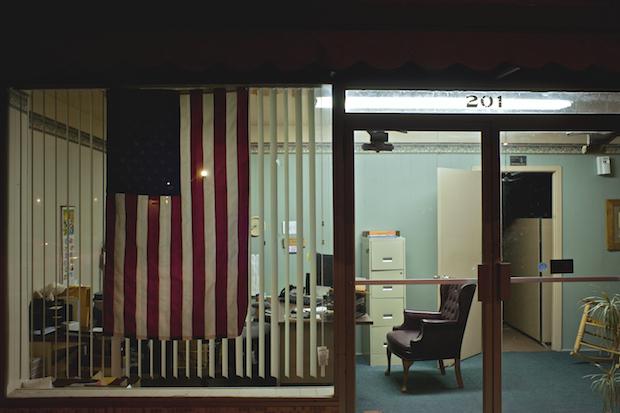
7 Eugene Louisiana 2009"Small businesses, not them big industries like oil .......small business is what built America.”Louisiana resident 2009
-

8 Taft Louisiana 2011 (Video Still)"We can build these giant monuments, but we can't pay for the tution bill.We can lock people up in prison, but we can pay for schools.I mean, thats a recipie for disaster.And then sometimes, I’m hoping when something comes along like Katrina, that sometimes…."Video sequnce audio section.
-

9 Sabine Pass Texas 2009"... I heard it had been bad ...... this is the first time I've been back.... Its gone, all gone... just, gone.Weeping man at gas station.Hurricane Ike had taken his vacation home.”High Island Bolivar Peninsula Texas 2009
-
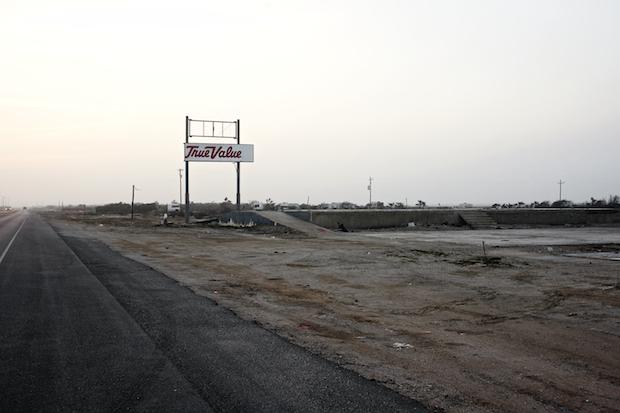
10 Bolivar Peninsula Texas 2009
-

11 Sante Fe New Mexico 2009"This one.... cleansing and power.This one... rebirth.... Wealth ?We don't have a symbol for wealth in our culture.”Native American at his Jewelery stand at the Palace of the Governors
-

12 Rio Grande River Bed New Mexico 2009"Water is life.When you take away our water,you take away our life.”Navajo Expression"
-
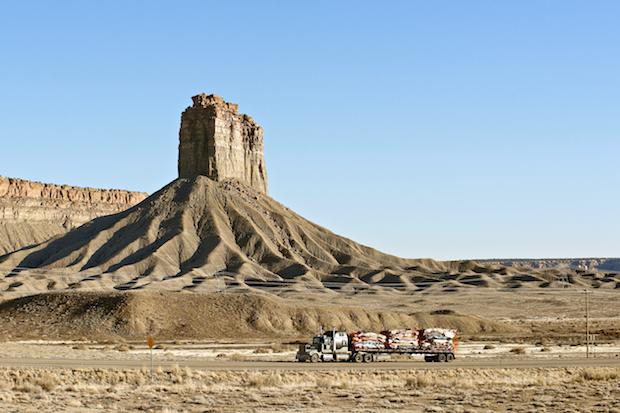
13 Four Corners Utah 2009"Scrap, great business to be in ...... got plenty of school buses.Hey, we've even got a donkey basketball bus in here.”Scrap dealer Nevada 2009
-
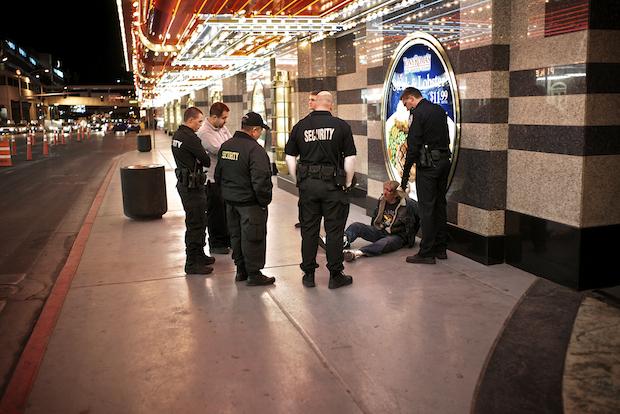
14 Las Vegas Nevada 2009
-
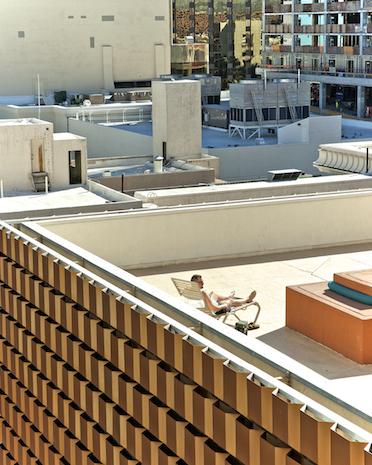
15 Las Vegas Nevada 2009" ... You can't guarantee the view in Vegas ...That's the one thing for sure in the Vegas property scene.”Real estate dealerLas Vegas 2011
-

16 Nevada California Border 2009
-
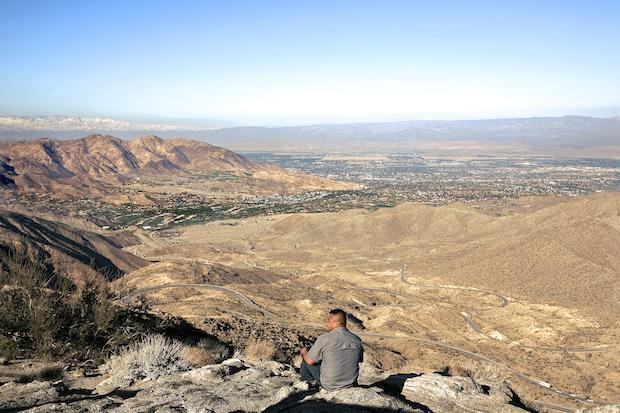
17 San Jacinto California 2009"When they found resources on our land, we became US citizens.That was in 1921.Before that, we had no rights.”Navajo historian Arizona 2011
-
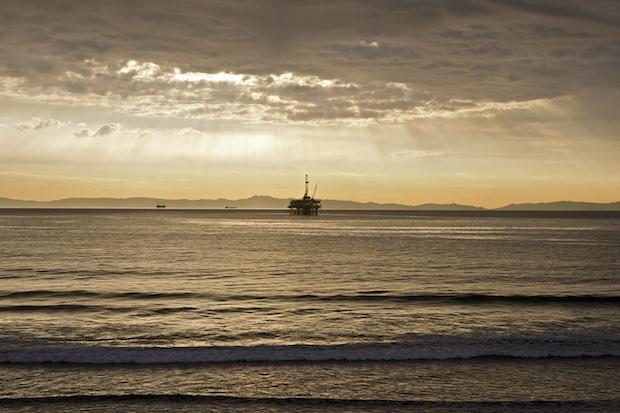
18 Huntington Beach California 2011
Visiting America in my childhood revealed a brave and dynamic new world. Its intense sun and endless horizons made my early life in northern England seem comparatively monotonous; a colourless black and white. The U.S. I saw in the Sixties was at its most dynamic: the economy was booming and productivity was at its highest levels. Enthusiasm, energy and opportunity abounded.
Forty years later, I returned.
Setting out on the day of the inauguration of President Barack Obama, I began a cross-country voyage from Miami to Los Angeles - the Sunbelt, a region long viewed as the future boomland for the United States. This hot, southern region, stretching from coast to coast, was the land of hope for this generation. Agriculture, housing, immigration and the military were all predicted to repeat the growth of the Sixties.
The country I discovered was a far distance from the impressions of my youth. In January 2009, at the height of the economic crisis, men with “will do anything for work” signs lined the roads, alongside rows of improvised yard sales full of personal souvenirs available for two dollars a shot.
The further I journeyed, I saw the impact of both the manmade and environmental crises the region had suffered. Years after Hurricane Katrina, the coastal towns outside of New Orleans were still devastated. Crossing Texas, the grasslands were decimated from years of continual drought.
At last, to California, where industrial food production swallowed all the water the Nevada river could send to it. Reaching the Pacific, it seemed that there was only one industry impervious to economic and environmental decline - Big Oil.
Retracing my journey in late 2011, I flicked the video switch on my camera, recording the hopes and histories of the people, the loneliness of the road, the beauty of nature and the impact of man across the Stormbelt.
This multimedia ebook commemorates my first sketch of life in the “new” United States.
Stormbelt is an enhanced eBook of photography, film, conversation, sound collage and music featuring essays by Ted Prize winners, environmental photographer Edward Burtynsky, and Cameron Sinclair, the founder of Architecture For Humanity. Editorial direction is by Chris Boot of the Aperture Foundation.
3 WAYS TO SHOW YOUR SUPPORT
- Log in to post comments











